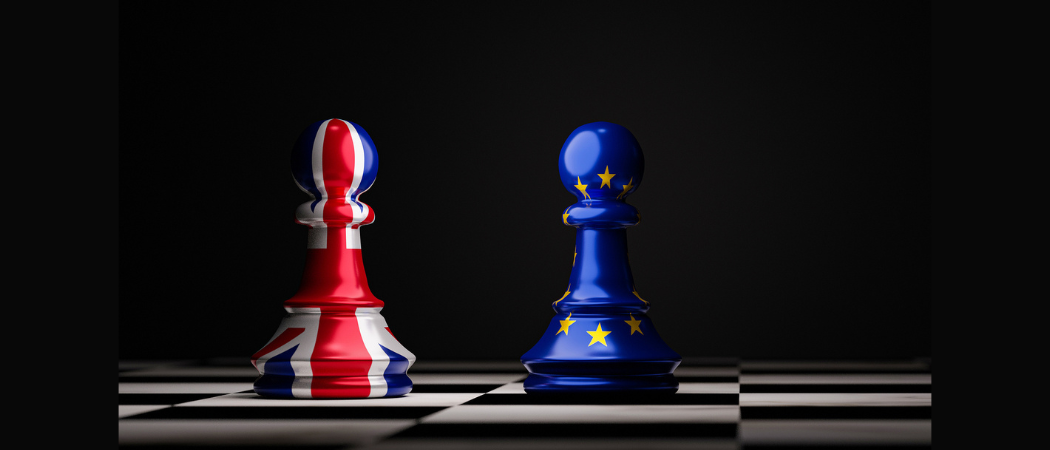London now has a firmer guarantee it will get money back if UK researchers fail to win enough grants from the research programme. But the deal is still lopsided - in the EU’s favour

The UK now has guarantees that it won’t have to make more than a 16% net contribution to Horizon Europe, according to UK and EU sources, a reassurance that has allowed today’s deal to go ahead.
Since February, negotiators have been locked in discussions over a technical part of the Trade and Cooperation Agreement (TCA), agreed back in 2020 setting out post-Brexit relations, including what the UK will pay for association.
Association could have been signed off in 2021, but disputes over Northern Ireland got in the way. In February this year, the Windsor Framework broke this wider impasse, but the UK remained concerned that the association conditions could leave it financially exposed.
The TCA only promises “further measures” and the adjustment of “future financial contributions” if the UK pays in 16% more than it gets out of Horizon Europe, pledges that were too vague for the UK.
The TCA itself hasn’t been amended – neither side wanted to open that can of worms – but negotiators have now firmly agreed that the UK’s net contribution will be capped at 16% (apart from small administrative fees on top of this).
“When the 16% threshold is reached, we are capping the losses,” confirmed an EU official today.
“The main thing, apart from the exact number, is that the European Commission seems to have been willing to be flexible,” and put in a firmer backstop against UK losses, said Martin Smith, head of the policy lab at the Wellcome Trust, the UK medical research charity.
Downing Street has trumpeted the deal as including “improved financial terms of association” that gives London “a new automatic clawback that protects the UK as participation recovers from the effects of the last two and a half years.”
Not symmetrical
However, the deal is still somewhat lopsided. The UK starts getting a refund if it puts in 16% more than it gets out. But it will have to start paying the Commission if it gets 8% more out than it puts in. For some other associated countries, like Israel, this correction mechanism is equal in both directions.
“It’s not symmetrical,” said Smith. “But to be honest, everyone will be working hard to win as much as possible, and it’s the security of knowing it’s not an unlimited net contribution. What was on offer before didn’t provide that in robust enough terms to give the reassurance the UK wanted.” Changing this 16% figure would have required even more haggling, he said.
The UK’s association deal is also financially very different from when it was a member of the EU. Then, its contribution to the research programmes were based on the size of its economy, without clawback mechanisms.
That meant it was a big net winner from the Framework programmes because UK scientists were so successful. That needs to be viewed in the context that overall the UK was a net contributor to the EU budget, and as a member of the union could not pick and choose which programmes to join.
Leaders’ trust
A wider thaw in relations between the UK and EU since the Windsor Framework has also made today’s deal possible, said Peter Mason, who leads global research and innovation policy at Universities UK.
“The trust the leaders have in each other is absolutely key to this,” he said. UK prime minister Rishi Sunak and Commission president Ursula Von der Leyen spoke to confirm the deal on 6 September.
“It’s great for the scientific community, but it also augers well for the broader relationship,” Mason said.
Further guarantees
The clawback mechanism isn’t the only new thing agreed in today’s deal. The joint statement announcing the agreement stresses that the EU and UK share a mutual interest in developing “new and emerging technologies” and that the EU will assess UK access to “strategic” parts of the programme on “equal terms” with other associated countries.
That’s a nod towards a row in 2021 in which the Commission proposed excluding the UK, Israel and Switzerland from applied quantum and space projects because of their importance to security.
Today’s statement hints that both sides want to avoid similar exclusions, although until new work programmes are drawn up, it’s impossible to know whether the UK will face any similar shut-outs. “There is no way to predict or envisage this at this stage,” said an EU official.
The EU and UK are also going to host “joint outreach and engagement activities designed to encourage the participation of UK entities within both programmes”, according to the UK.
This is to overcome the uncertainty of the last two years, and reassure EU scientists that the UK is now fully associated once again.
“The immediate challenge is to get the level of cooperation to snap back to where it was before,” said Thomas Jørgensen, director of policy coordination and foresight at the European University Association.





 A unique international forum for public research organisations and companies to connect their external engagement with strategic interests around their R&D system.
A unique international forum for public research organisations and companies to connect their external engagement with strategic interests around their R&D system.